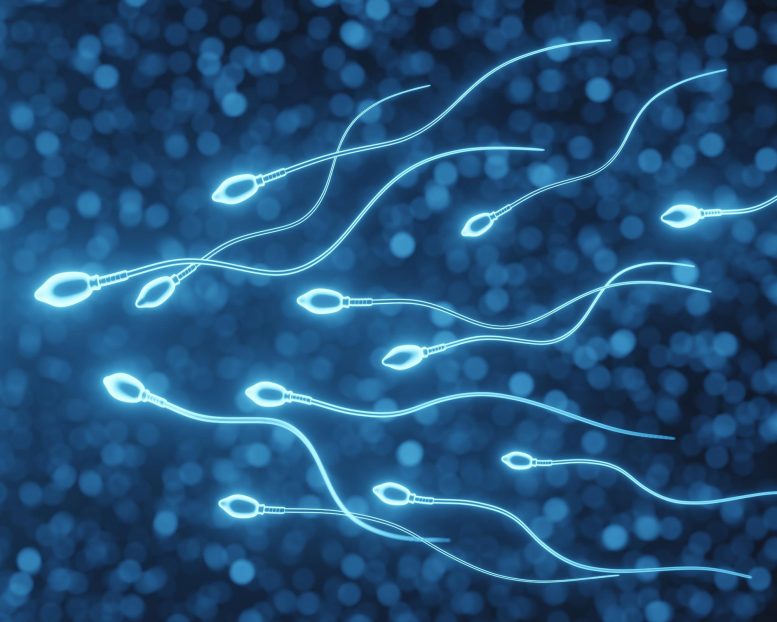
A new study finds that sperm production is more biologically taxing than previously thought, with significant health implications.
According to Dr. Damian Dowling of Monash University’s School of Biological Sciences and Professor Leigh Simmons of the University of Western Australia, reproduction may be more biologically taxing than previously thought. In their published research, they used the Australian cricket to prove the trade-off between sperm quality and immunity. When given a choice of female crickets to mate with, males produced high-quality sperm more often when housed with sexually mature females, which in turn made them more likely to succumb to a bacterial infection.
A new study shows the production of sperm is more biologically taxing than previously thought, and expending energy on it has significant health implications.

Dr. Damian Dowling of Monash University’s School of Biological Sciences. Credit: Monash University
In research published in the journal PLoS ONE, Dr. Damian Dowling of Monash University’s School of Biological Sciences and Professor Leigh Simmons of the University of Western Australia have investigated the trade-off between sperm quality and immunity.
The researchers used the Australian cricket, Teleogryllus oceanicus to prove that the production of quality sperm is expensive and males are strategic about investing energy in the biological process.
Dr. Dowling said investigations into life history trade-offs — investment in reproduction versus future reproduction and survival prospects — have historically focused on females.
“This study challenges the traditional view that sex, and sperm production, come cheaply to males. It is typically thought that females must invest heavily into reproduction, whereas males can freely produce millions of high-quality, tiny sperm on demand, with few costs,” Dr. Dowling said.
“Here we show that the costs are in fact large, and these costs dictate how much effort a male will devote into any given sexual encounter.”
The crickets were housed either with sexually immature females, sexually mature females incapable of reproduction, or sexually mature females capable of reproduction. Sperm quality was measured twice and immune function once during the experiment.
Dr. Dowling said the male crickets were more likely to produce high-quality sperm when housed with sexually mature females with whom they could mate, indicating a strategic investment of energy.
The researchers also found that the production of quality sperm appeared to have a negative effect on the crickets’ immune systems.
“Males that invested heavily in their sperm paid the price of being more likely to succumb to a bacterial infection. And we are not talking about STDs here — we are talking about how increased investment into the quality of the ejaculate corresponds with general reductions in immune function,” Dr. Dowling said.
Reference: “Ejaculate Economics: Testing the Effects of Male Sexual History on the Trade-Off between Sperm and Immune Function in Australian Crickets” by Damian K. Dowling and Leigh W. Simmons, 11 January 2012, PLoS ONE.
DOI: 10.1371/journal.pone.0030172









Be the first to comment on "Researchers Show Sperm Production Has Health Implications"